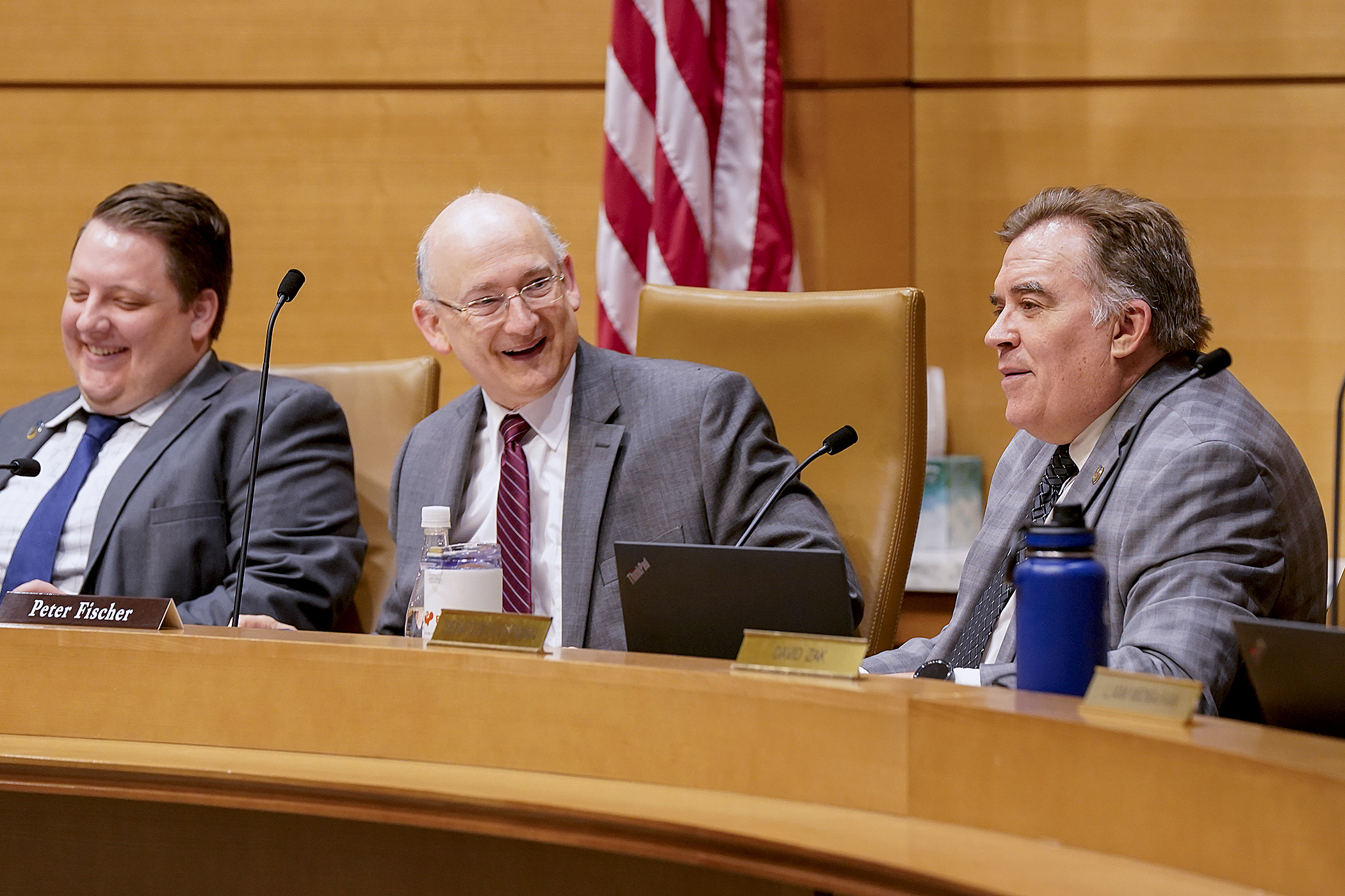Human services conference committee testimony centers on subminimum wages, recovery peers

The human services policy conference committee heard mixed opinions from the public Thursday on proposals that would phase out subminimum wages for workers with disabilities, and prohibit substance use disorder recovery peers from working as independent contractors.
In its first meeting conferees heard testimony and announced their intention to begin negotiations to iron out the differences between HF4392/SF4399* beginning Friday.
Katherine Brady favors phasing out the subminimum wage.
“Josh is a true success story that this model can and does work,” she said of her son, Josh, who is blind and has cognitive challenges. He has worked for the past two years at Pizza Hut and is not paid less than minimum wage, which would be allowed for employers certified under section 14c of the Fair Labor Standards Act.
Sue Hankner, co-founder of A-Team Minnesota, sees it differently.
“14c providers are nonprofits with primary revenue from state and federal programs,” she wrote to the committee. “If they are required to pay minimum wage to every client, will the Legislature provide funds to pay them?”
Sponsored by Rep. Peter Fischer (DFL-Maplewood), the House bill would phase out the subminimum wage for new hires from Aug. 1, 2026, and for existing employees from Aug. 1, 2028.
The Senate bill, sponsored by Sen. John Hoffman (DFL-Champlin), does not include language on the 14c program.
On the separate matter of prohibiting substance use disorder recovery peers from serving as independent contractors, Lucas Kania, a certified peer recovery specialist with Refocus Recovery, testified that recovery peers who work within communities benefit from the flexibility afforded an independent contractor.
As an employee himself, Kania said he is limited to working eight hours a day.
Presenting a different opinion were Jode Freyholtz, executive director of Wellness in the Woods, and Tracee Anderson, executive director of Minnesota Prevention & Recovery Alliance.
Freyholtz said classifying recovery peers as employees protects them from liability and tax matters. Anderson said recovery peers are frequently in recovery themselves and often need daily support and ongoing quality supervision.
Only the House bill contains language that would require recovery peers to serve as employees.
Related Articles
Search Session Daily
Advanced Search OptionsPriority Dailies
Ways and Means Committee OKs proposed $512 million supplemental budget on party-line vote
By Mike Cook Meeting more needs or fiscal irresponsibility is one way to sum up the differences among the two parties on a supplemental spending package a year after a $72 billion state budg...
Meeting more needs or fiscal irresponsibility is one way to sum up the differences among the two parties on a supplemental spending package a year after a $72 billion state budg...
Minnesota’s projected budget surplus balloons to $3.7 billion, but fiscal pressure still looms
By Rob Hubbard Just as Minnesota has experienced a warmer winter than usual, so has the state’s budget outlook warmed over the past few months.
On Thursday, Minnesota Management and Budget...
Just as Minnesota has experienced a warmer winter than usual, so has the state’s budget outlook warmed over the past few months.
On Thursday, Minnesota Management and Budget...